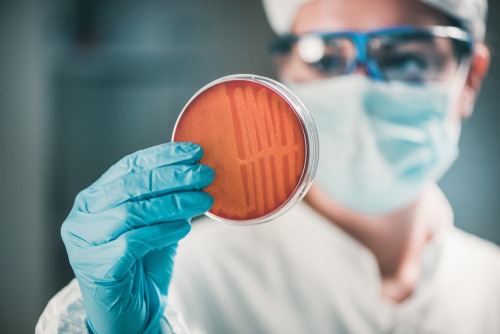
VE303, an oral treatment developed by Vedanta Biosciences for patients at high risk of recurrent C. difficile infections (CDI), will get a Phase 3 clinical evaluation trial, thanks to support from the Biomedical Advanced Research and Development Authority (BARDA).
Support from the U.S. government followed successful completion of a Phase 2 clinical trial, wherein VE303 showed significant benefits and acceptable safety levels. It works through reconstitution of a patient’s gut microbiome, effectively restoring the normal balance of bacteria found in the human digestive tract. Such balance can prevent overgrowth of C. difficile, which afflicts half a million each year and causes 45,000 deaths annually in the U.S. alone.
The Centers for Disease Control and Prevention (CDC) has identified antibiotic-resistant CDI as an urgent public health threat, especially since secondary infections from things like pandemic influenza are often treated by broad-spectrum antibiotics that can reduce the body’s natural, protective gastrointestinal bacteria, increasing the risks of C. difficile. Treatments for C. difficile can further disturb the gut microbiome and actually allow it to further spread and damage the intestines, creating a cycle that leads to the advancement of antibiotic resistance.
In its Phase 2 trial, VE303 provided a 31.7 percent risk reduction in rate of recurrence — a greater than 80 percent reduction in odds of recurrence — eight weeks after dosing, when compared to placebo. It proved well-tolerated along the way.
Now, Vedanta and BARDA intend to start the next phase trial in the second half of 2022.




